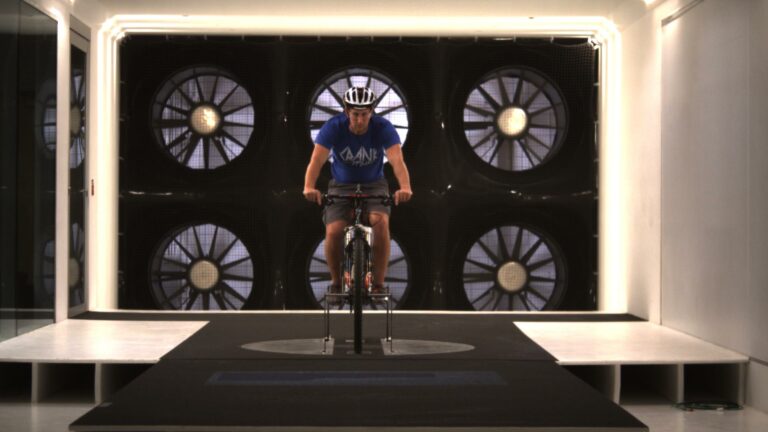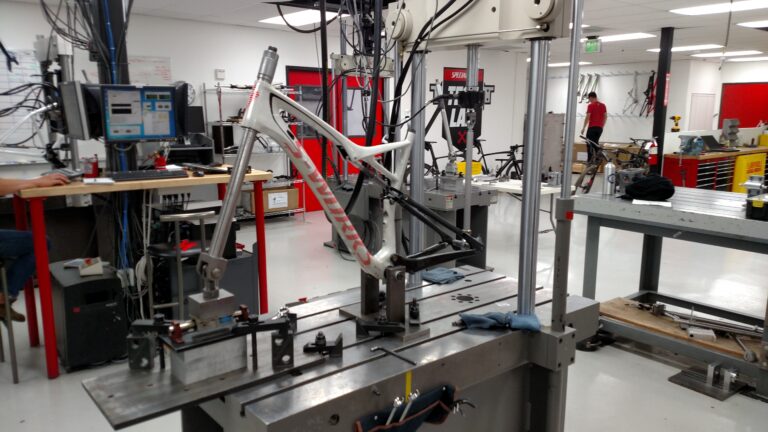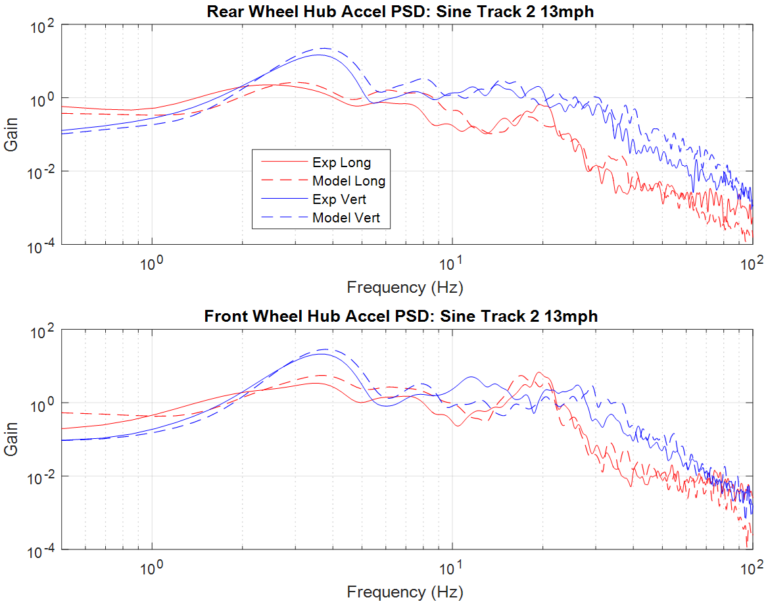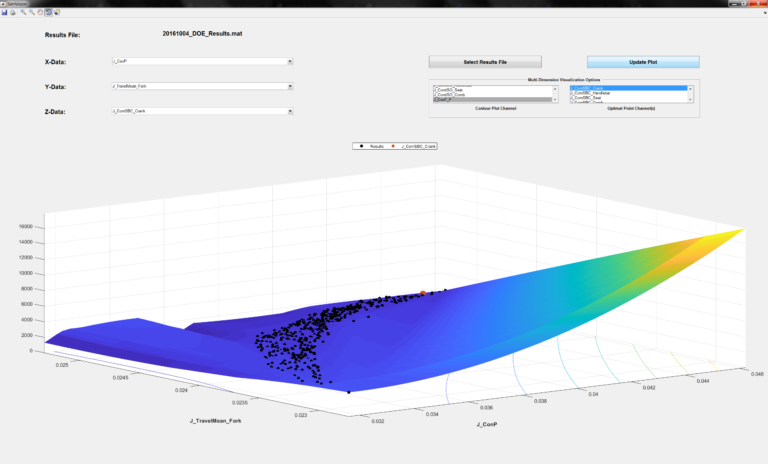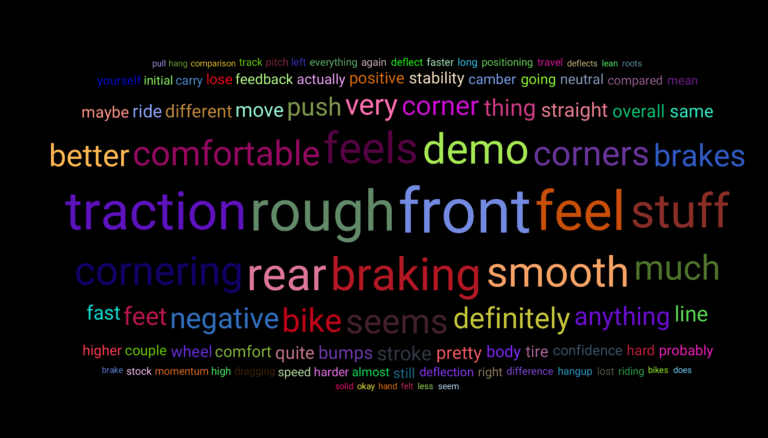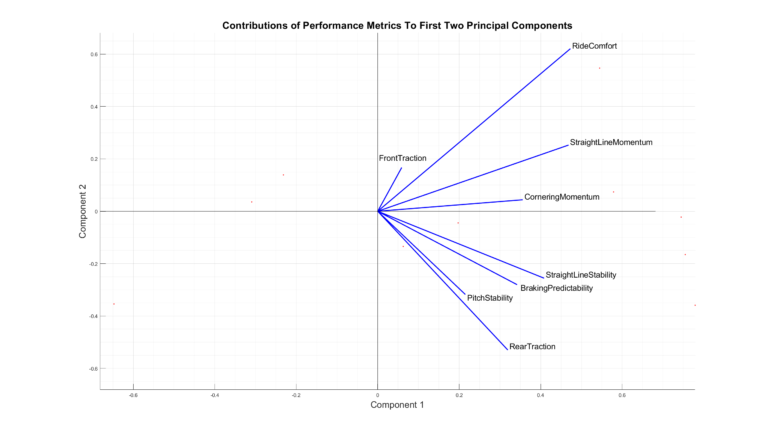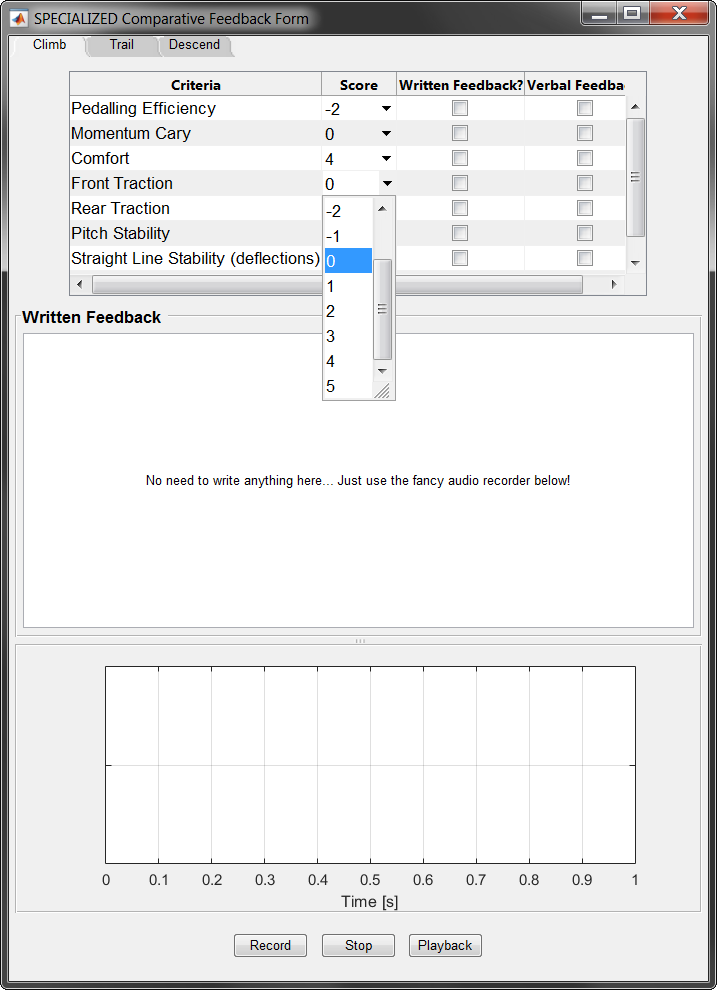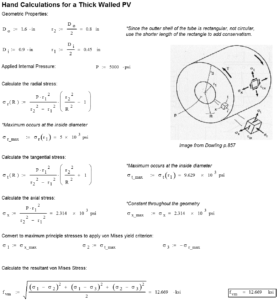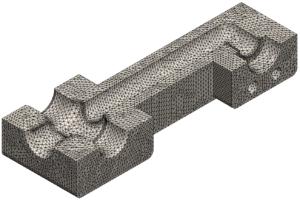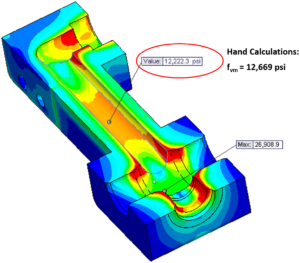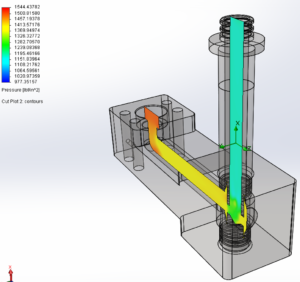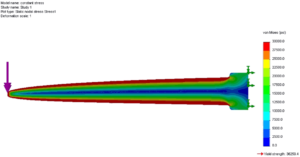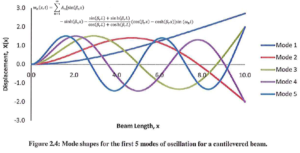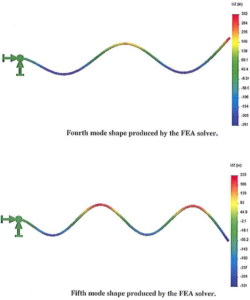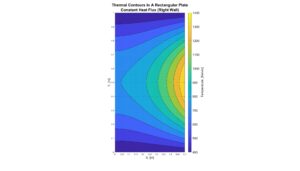Mountain Bike Simulation Model
Skills: Multi-body Dynamics | Multi-Variable Optimization
Tools: MATLAB | Simulink | Simscape Multi-Body | Parallel Computing Toolbox
- Collaborated with McLaren Applied Technologies to build a fully parameterized multi-body dynamics model of a full suspension mountain bike + human rider
- Utilized the Specialized Suspension Lab, Test Lab, & Win-Tunnel to characterize the performance of the entire system. (Springs, Dampers, Tires, Chassis Stiffness, & CdA)
- Designed sinusoidal test tracks to excite the natural modes of the bike suspension for model validation
- Conducted experiments with data acquisition on a fully instrumented bike to validate model accuracy.
- Devised algorithms to distil simulation results down to scalar values (performance metrics) that can be used to quantify performance
- Utilized the MATLAB Parallel Computing Toolbox and Amazon EC2 to run thousands of simulations, exploring the entire design space.
- Built a MATLAB based visualization tool to study relationships between model parameters and performance metrics, and aid in devising multi-variable optimization strategies.
Subjective Feedback Analysis
Skills: Principal Component Analysis | Speech/Text Analysis
Tools: MATLAB | Python | Google Cloud Platform
- Compiled MATLAB program to run on Windows Surface Pro as a means for standardizing how subjective feedback is gathered as it relates to product performance
- Each new product scored relative to an existing product for various predefined criteria
- Field to provide written feedback (optional)
- Field to record verbal feedback (required)
- Conducted extensive field testing to gather rider impressions of prototype and competitor bikes in controlled experiments
- Performed principal component analysis (PCA) to understand relationships between our ranking criteria, and to assess how discerning our test riders actually are
- Wrote Python programs to utilize Google Cloud’s transcription functionality and convert verbal feedback to usable text strings
- Performed text analysis with the following objectives:
- Formulate a standard vocabulary for future tests to encourage test subjects to speak about products consistently
- Identify our least discerning test riders (use many vague words), and avoid using them in the future
- Identify common vocabulary between products that can later be linked to favorable design attributes
Finite Element Analysis
Skills: Solid Mechanics | Fluids | Heat Transfer | Vibrations
Tools: SolidWorks Simulation Professional | MATLAB | MathCAD
- Extensive experience with SolidWorks Simulation Professional
- Complex structural FE models
- Mix of solids, shells, beams, & bolted joints with contact
- Non-linear failure analysis
- Optimization of structures
- Internal fluid flow
- Free vibration of structures
- Thermal analysis
- Emphasis placed simulation accuracy, knowing the limitations of the software, and working within those limitations
- Ex: Derived analytical solution for free vibration of a cantilevered beam using Euler-Bernoulli beam theory and proved that SolidWorks Simulation uses this method
- Thus, when using SolidWorks to analyze beams with a low slenderness ratio, results may be inaccurate
- Ex: Derived analytical solution for free vibration of a cantilevered beam using Euler-Bernoulli beam theory and proved that SolidWorks Simulation uses this method
- Complex structural FE models
- FEA only implemented when the problem cannot be completely and/or easily solved with hand calculations
- To bound the problem, a clear definition of load cases and hand calculations are always the first steps in any FEA
- FEA only implemented when the problem cannot be completely and/or easily solved with hand calculations
